“Aw man, I shot Marvin in the face!”
So says Vincent Vega, the twist-ready, long-haired hitman in Quentin Tarantino’s zany, irreverent, and ultimately hilarious Pulp Fiction. “Why the f—ck did you do that?!” asks his newly retired partner Jules Winnfield, noticing their informant’s blood splattered all over the back of his 1974 Chevy Nova. “I didn’t mean to do it, it was an accident!” Vincent replies. “You probably … you went over a bump or something.”
Pulp Fiction has become a cult classic in the 30 years since its release precisely because of scenes like this one. Moments prior, Vincent and Jules were just driving through the San Fernando Valley, musing about the plausibility of divine interventions. Then, suddenly, an entropic intrusion of violence forces them to react.
Tarantino spent three months in Amsterdam polishing the script, which consisted roughly of three interwoven chapters: A nostalgic, heroin-fueled night between Vincent and his mob boss’ wife. A boxer’s perilous escapade after defying the same mobster’s orders. The two hitmen’s handling of the Marvin oopsy daisy while retrieving their boss’ enigmatic briefcase.
By late 1992, Tarantino had returned stateside with a screenplay, albeit one scribbled over hundreds of madman-esque handwritten pages. “He’s a functional illiterate,” typist Linda Chen recalled to Vanity Fair. “I was averaging about 9,000 grammatical errors per page. After I would correct them, he would try to put back the errors, because he liked them.”
Did she feel at the time that she was working on a modern cinematic masterpiece? “Not at all.”
But two years later, Pulp Fiction blew up, winning the Palme d’Or before earning Tarantino and co-writer Roger Avary an Oscar for best original screenplay. It grossed $214 million globally on an $8.5 million budget, paving the way for indie classics like Memento, Magnolia, and Mulholland Drive (to name just movies that start with “M”) to experiment with overlapping, nonlinear storylines. Its eminent quotability (“Royale with Cheese,” “I’m gonna git medieval on your ass,” “Zed’s dead, baby, Zed’s dead”) entered the cultural bloodstream, and its poster—featuring a 24-year-old Uma Thurman, with aggressive bangs and a cigarette in hand, staring entrancingly at the camera—became a college dorm room staple.
Part of what makes Pulp Fiction so memorable, what continues to fuel its detractors and hype its boosters, is its undeniable infatuation with cinematic history. Each new viewing unspools another iconic allusion, whether of Alfred Hitchcock’s Psycho, Robert Aldrich’s Kiss Me Deadly, or even The Flintstones. “I steal from every single movie ever made,” Tarantino admitted to Empire. (Even this line may have come from Pablo Picasso, who purportedly said, “Good artists copy, great artists steal.”)
The film also delivered some of the best performances of the 1990s. John Travolta almost didn’t play Vincent—Michael Madsen had a scheduling conflict and Daniel Day-Lewis failed to impress Tarantino, who turned him down—but his portrayal of the character was a magnificent concoction of cool and exasperated. A producer confused Samuel L. Jackson for Lawrence Fishburne during auditions (whoops), irritating the actor into delivering a fiery tryout as Jules. Thank the Lord: Jackson’s wry wrath gave Pulp Fiction some of its most memorable lines. (“‘What’ ain’t no country I ever heard of! They speak English in ‘What’?”) Bruce Willis adds a composed physicality to Butch Coolidge (the boxer), and Thurman turns Mia Wallace (mob boss Marsellus Wallace’s wife) into an unforgettable, Wyatthian coquette.
And rewatching the film today, I was surprised by how well it preempts one of the main criticisms levied against Tarantino: that beyond the hyper-stylized dialogue and violence, there’s not much of a there, there.
For its detractors, Pulp Fiction—especially its brutal, at times sadistic violence—is merely a senseless, gratuitous provocation. Kenneth Turan of the Los Angeles Times wrote in 1994 that its most graphic scenes evince “the uncomfortable feeling of creative desperation, of someone who is afraid of losing his reputation scrambling for any way to offend sensibilities.” The Catholic philosophers Francis Slade and Alasdair MacIntyre went even further, arguing that Tarantino’s films—Pulp Fiction included—reflect the fundamental flaw of contemporary moral philosophy: our inability to recognize fixed teleological ends in the universe, as opposed to mere declarations of our will.
The result? A “world without ends,” per Slade and MacIntyre, is one in which “violence becomes ordinary, the usual, the way things are.” It doesn’t matter what Marvin getting shot in the face says about Jules and Vincent as people; what matters is that they must now react to the consequences of the morally vacuous event—and that Tarantino gets to make a little game out of it.
It’s a fair criticism of Tarantino’s recent films—Inglourious Basterds, Django Unchained, and Once Upon a Time … in Hollywood—which are propelled by a cathartic itch for revenge. Not of Pulp Fiction, though.
That’s because once you get past the shock value of a gruesome overdose or the bizarre entrance of The Gimp (if you know, you know), Tarantino repeatedly gives his Pulp Fiction characters the choice to do good when it most counts—and they often do. Butch returns to save Marsellus despite the bounty on his head. Similarly, after their impromptu dance competition, Vincent is committed not to cross a line with the married Mia. “This is a moral test of oneself,” he even says to himself.
Most notably, even the jauntily cold-blooded Jules ultimately makes the right choice. For years he had dropped an (admittedly made-up) Old Testament verse on his helpless targets, but by the end of the film, Tarantino transforms those very words from being preludes to death into catalysts of redemption. “The truth is you’re the weak,” Jules tells a would-be victim at the end of the film, “and I’m the tyranny of evil men. But I’m tryin’, Ringo. I’m tryin’ real hard to be a shepherd.”
There’s simply something more going on in Pulp Fiction than mere action and reaction in an empty, after-virtue wasteland. No, Tarantino is certainly not harkening back to an Aristotelian revival free of moral turpitude. But perhaps in 1994, he willingly suggested that amid excess, violence, and seeming senselessness, goodness has a way of bubbling up to the surface, even in a brutal world.
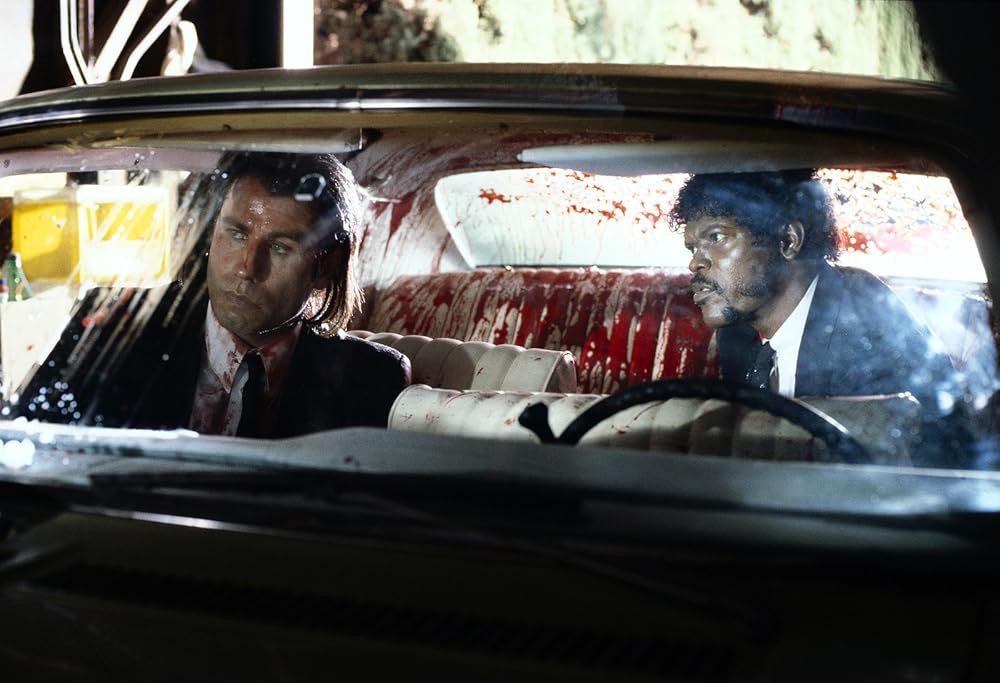

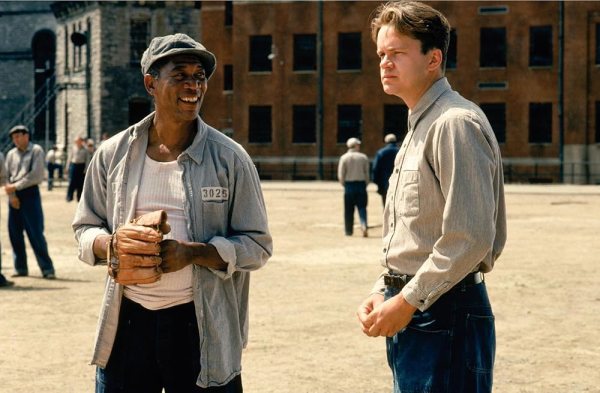
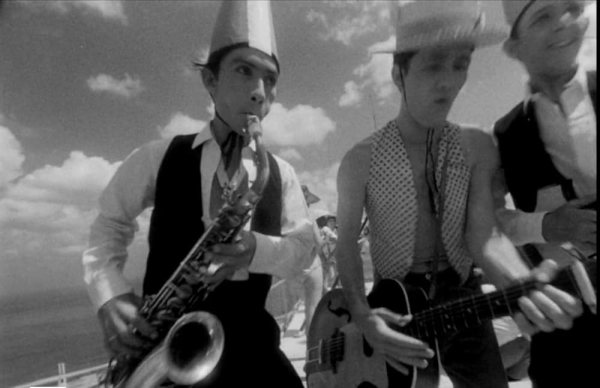
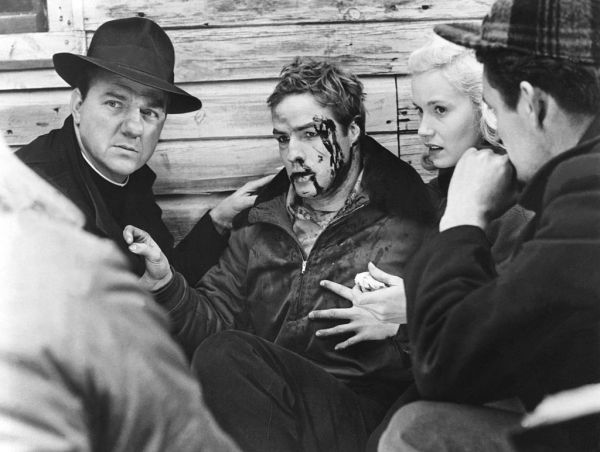


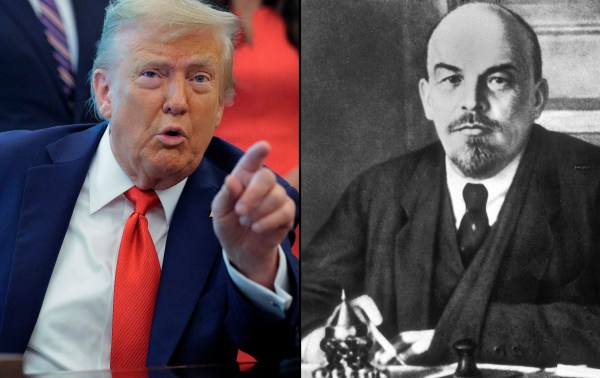


Please note that we at The Dispatch hold ourselves, our work, and our commenters to a higher standard than other places on the internet. We welcome comments that foster genuine debate or discussion—including comments critical of us or our work—but responses that include ad hominem attacks on fellow Dispatch members or are intended to stoke fear and anger may be moderated.
With your membership, you only have the ability to comment on The Morning Dispatch articles. Consider upgrading to join the conversation everywhere.